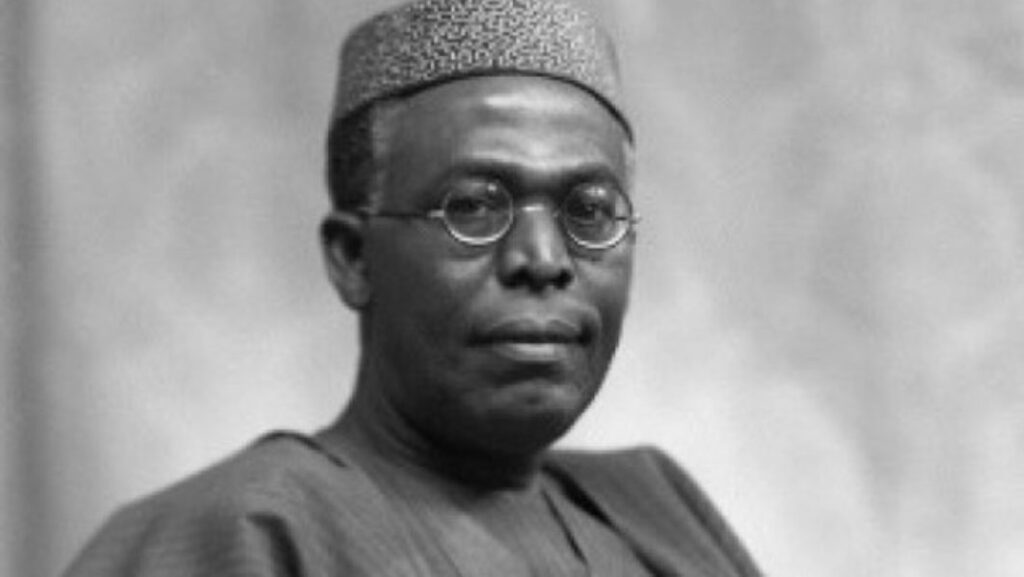The question of whether socialism is still feasible in Nigeria after Awolowo is necessary considering his prediction in his Voice of Courage, (page 144) that “socialism is the only safe and beneficial path which Nigeria should tread in tackling and solving its post-war problems.” As a social democrat and political prophet, it is on record that several of Awolowo’s prophecies had been fulfilled. This explains the reason most Awoists will want to believe that Awolowo’s unfulfilled prophecies are still coming to be fulfilled. It is against the backdrop of this assumption that this essay wants to look at the feasibility of socialism in contemporary Nigeria.
Socialism is a socio-politico-economic philosophy that accommodates a wide range of socio-economic agenda aimed at achieving social ownership of the means of production through workers’ self-governance.
Despite the optimism by the politicians and intellectuals of the left that socialism is practicable, those of the right wing have argued that socialism is dead and buried.
I begin with the examination of the argument often cited to confirm the death knell of socialism. This is to the effect that since no government in the world owns everything, there can be no socialism. I submit that Nigeria should ignore this because it is a misconception and an attempt to confuse socialism with communism. Indeed, socialism does not make government own everything. With socialism, the strictest form of ownership enjoyed by government is substantial (not absolute) and that is under revolutionary socialism. Even then, Nigeria may not need to go for this, but can instead consider the moderate and liberal type under evolutionary socialism.
Indeed, under social democracy, which is synonymized with evolutionary socialism, like in the Scandinavian countries (also called Nordic countries), government’s ownership is merely partial. This is akin to Awolowo’s practice of social democracy in the defunct Western Nigeria, where government’s ownership was merely fragmentary under Nigeria’s liberal democracy. In so far as this type of socialism will encourage our contemporary Nigerian leaders to go for the welfare of the masses of the people, I consider it feasible.
Also, the feasibility of socialism has been pooh-poohed because of the misconception that its objective is tailored towards creating an all-powerful government bureaucracy. This insinuation by critics is ill-conceived. Our leaders in Nigeria should know that socialism is all about allowing people most affected by socio-politico-economic decisions to be part of the decision-making apparatus. Thus, the situation where Nigeria’s political leaders are merely answerable to a few wealthy cabals who act as decision makers for millions of people should be discouraged. Nigerian leaders should stop the deployment of the resource-gathering propensities of the capitalists that relegate the interest and needs of the downtrodden to the abyss of hopelessness and oblivion. It is for this reason that workers and consumers who are affected by economic decisions in Nigeria should be allowed by the present leaders of Nigeria to take charge of economic institutions.
Besides, the argument that central planning erodes the people’s choice of rational economic decision because of the absence of competitively formed market prices is untenable. In fact, this argument has been debunked by the success of the Nordic countries’ central planning system that guarantees peoples’ choice.
Moreover, the argument by others that, where there is no cost accounting, there can be no prices and, for this reason, the means of production, labour and resources cannot be deployed for the greatest beneficial use cannot be true. This is because it has been discovered how the means of production have been exploited for the greatest beneficial use by the Nordic countries through their policy of high decommodification and low social stratification, which is gradually drawing them towards the achievement of absolute socialism.
It is submitted that contemporary Nigerian leaders should aspire to attain this ideal. The governments should note the high correlation between the welfare of the citizenries and their well-being. What should be paramount in the heart of our leaders is the happiness of the people of Nigeria as conceptualized by Awolowo via his social democracy philosophy. To guarantee happiness, the government should provide more protection, more flexible labour markets, and more freedom.
Another argument against socialism is that any attempt to articulate market will only result in an incoherent system, the consequence of which will cause elements of public ownership and market operation to repel each other. It is submitted, here, that the Nordic countries, which model of social democracy is akin to socialism, showcase a perfect coherent system. It is also on record that with Awolowo’s practice of social democracy too and his deft management of the economy during his stint as premier of Western Nigeria, there was no evidence of public ownership and market operation opposing each other in the region. Awolowo, indeed, succeeded phenomenally at making the Western Region people enjoy life in abundance.
In conclusion, it should be realised that socialism is still feasible in Nigeria after Awolowo’s demise.
The way forward is for our present Federal Government to emulate the social democracy template of Awolowo by regulating the economy and offering different programs to assist the young, the aged, the unemployed, the pensioneers, and the needy generally. This will, in no small measure, make the masses of the people enjoy welfarism and freedom. Social democracy comes in handy in a country like Nigeria with a mostly capitalistic economy.
The citizenries are sure to benefit immensely in a free-market capitalism situation where government’s genuine intervention via rules and their enforcement can modify economic behaviours, prevent market failures, and ensure large-scale social welfare programs, as seen in the defunct Western Nigeria. It is finally submitted that Nigeria, indeed, can be shaped by Awolowo’s type of social democracy. Consequently, President Bola Ahmed Tinubu should take a leaf from Awolowo’s book by creating wealth for the people of Nigeria and making them happy. He will be remembered forever for doing so.

